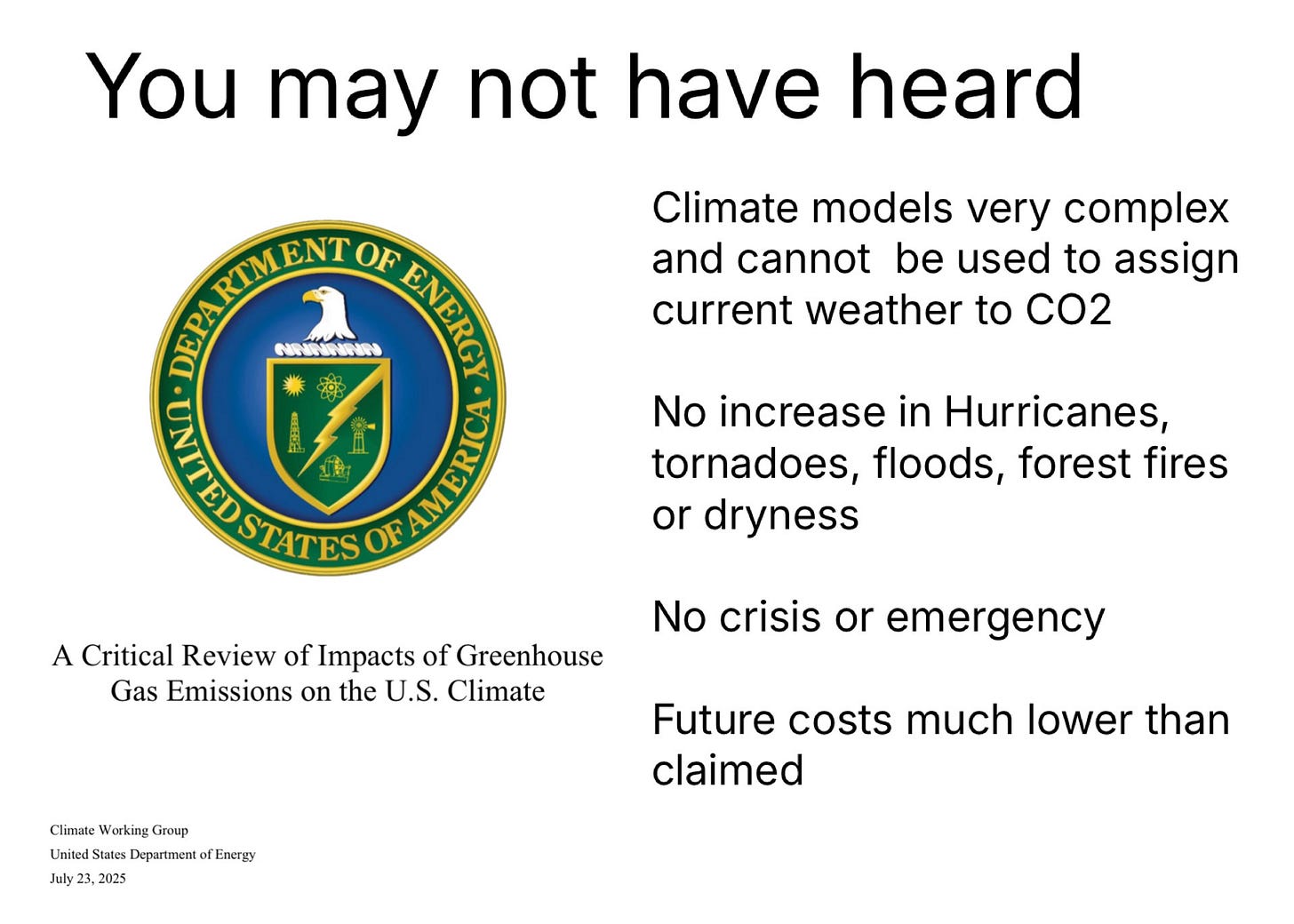New Climate News
• Complex climate models provide limited guidance on the climate’s response to rising carbon-dioxide levels. Overly sensitive models, often using extreme scenarios, have exaggerated future warming projections and consequences.
• Data aggregated over the continental U.S. show no significant long-term trends in most extreme weather events. Claims of more frequent or intense hurricanes, tornadoes, floods and dryness in America aren’t supported by historical records.
• While global sea levels have risen about 8 inches since 1900, aggregate U.S. tide-gauge data don’t show the long-term acceleration expected from a warming globe.
• Natural climate variability, data limitations and model deficiencies complicate efforts to attribute specific climate changes or extreme events to human CO2 emissions.
• The use of the words “existential,” “crisis” and “emergency” to describe the projected effects of human-caused warming on the U.S. economy finds scant support in the data.
• Overly aggressive policies aimed at reducing emissions could do more harm than good by hiking the cost of energy and degrading its reliability. Even the most ambitious reductions in U.S. emissions would have little direct effect on global emissions and an even smaller effect on climate trends.
https://www.energy.gov/sites/default/files/2025-07/DOE_Critical_Review_of_Impacts_of_GHG_Emissions_on_the_US_Climate_July_2025.pdf



